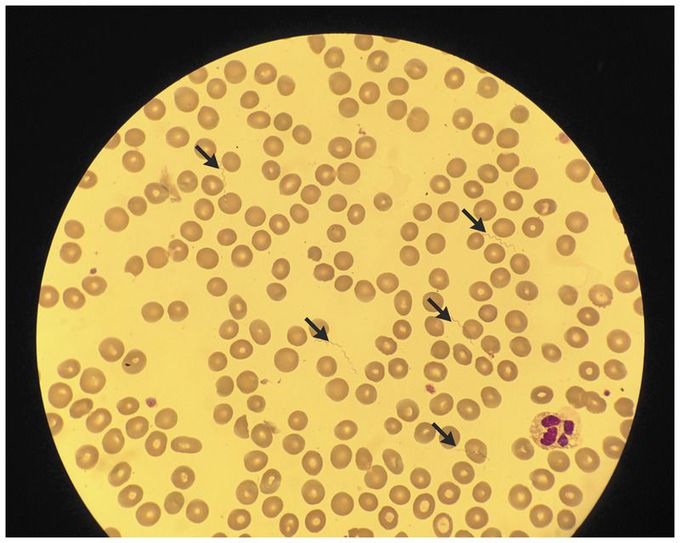


Borrelia recurrentis Infection
After collapsing in Munich, Germany, a 16-year-old male Somalian refugee was brought to a local hospital with severe headache and abdominal pain. His vital signs were notable for a temperature of 41°C, a heart rate of 105 beats per minute, blood pressure of 95/50 mm Hg, and an oxygen saturation of 98% while he was breathing ambient air. On examination, he appeared to have decreased consciousness and abdominal tenderness. Laboratory findings were notable for leukocytosis (>17×109 white cells per liter), an elevated C-reactive protein level of 250 mg per liter, a procalcitonin level of 17.6 ng per milliliter, and thrombocytopenia (47×109 platelets per liter). No malaria parasites were seen on the blood smear, but spirochetes were visible (arrows), a finding that suggested louseborne relapsing fever. The diagnosis was confirmed by means of a polymerase-chain-reaction assay. The patient was treated with doxycycline. Fever and mild hypotension developed shortly after the initiation of treatment, consistent with a Jarisch–Herxheimer reaction, and subsided when intravenous fluids were administered. The patient had a full recovery. Borrelia recurrentis is transmitted by body lice. Humans are the only host. After an incubation period of approximately 7 days, the illness is characterized by recurring episodes of high fever, headache, muscle and joint pain, nausea, and vomiting, with each episode lasting several days. Clinicians caring for refugees should be aware of the epidemiologic features and clinical picture of this disease. When this condition is left untreated, mortality can be up to 70%.

